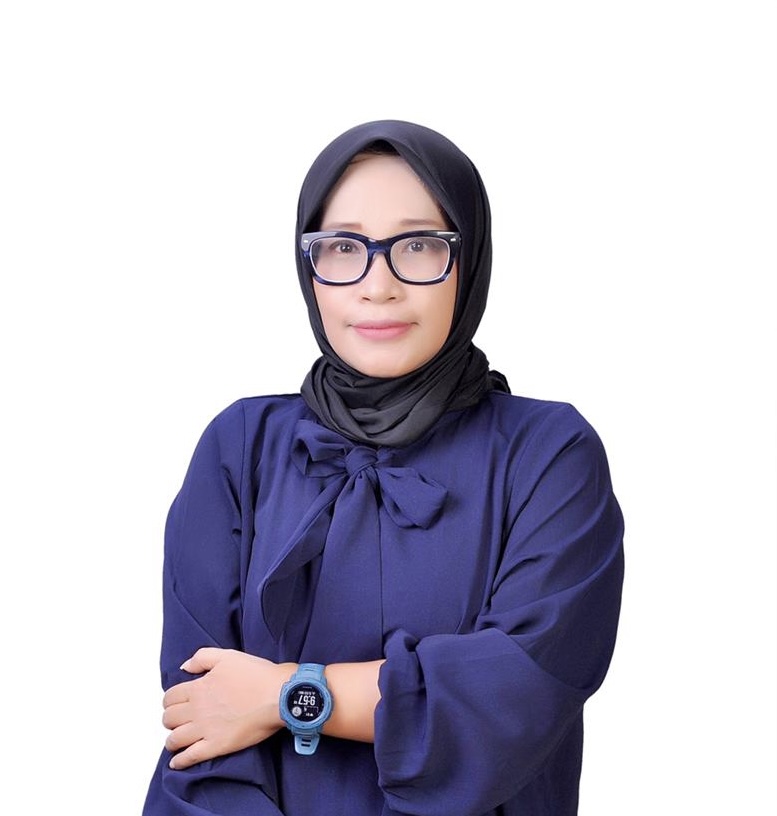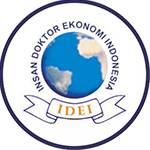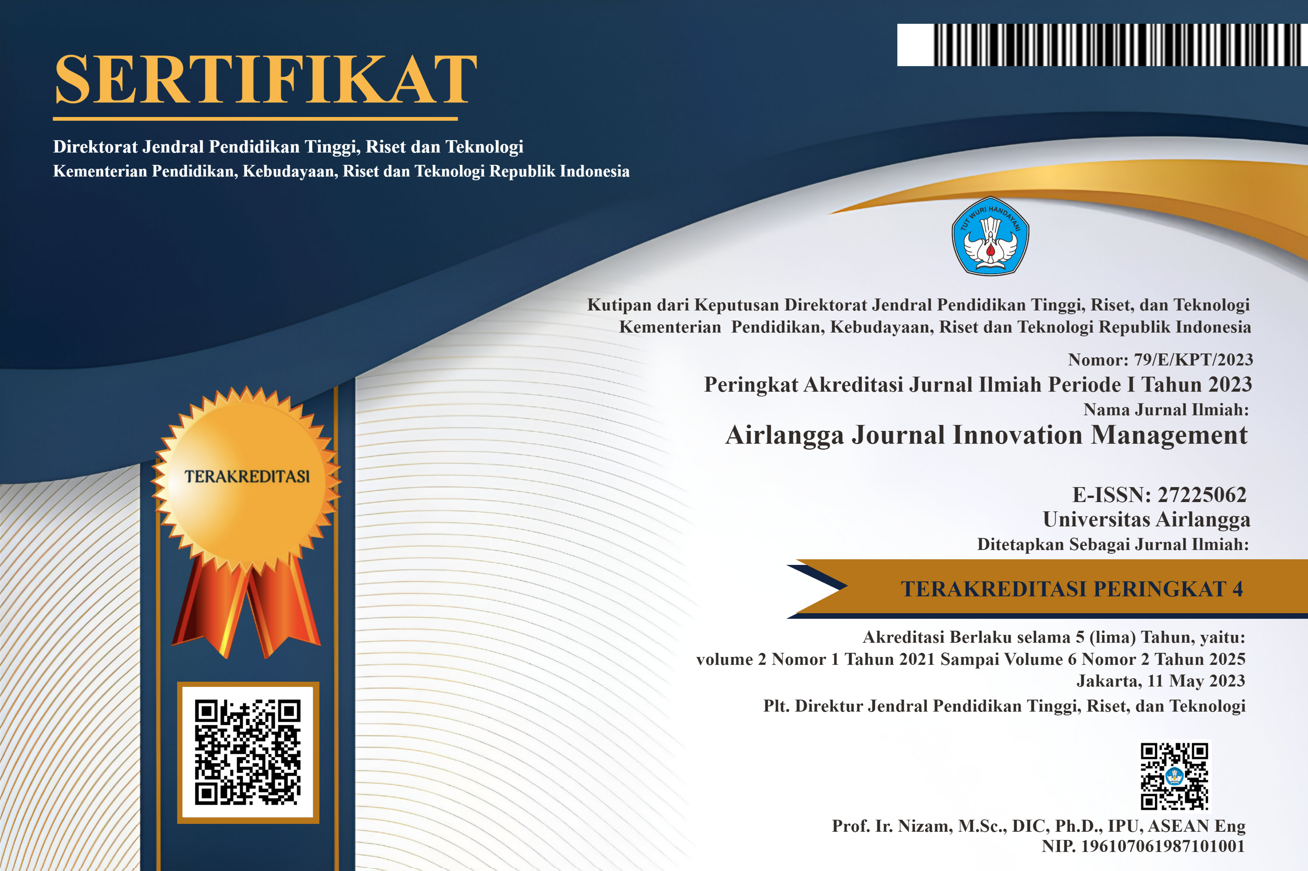The Role of Islamic Financial Management in Controlling the Consumptive Behavior of Islamic Economics Female Santriwati Shopaholics (Dalwa Islamic Boarding School for Girls)
Downloads
The increasing number of human needs for life, the increasingly demanding patterns of lifestyle improvements, and the culture of consumerism make some people not aware that they have spent their money without calculating it, low desire to save and knowledge of investing in the future is still less than optimal in management. This research is descriptive research with a qualitative approach. The researcher will describe and describe the social and economic life of Islamic boarding school students in Dalwa who already have personal financial goals (pocket) to plan, direct, and control financial activities, both expenses and income, to get used to a simple lifestyle, not consumptive, manage and plan shopping & consumption decision while at the cottage. From the results of field data analysis, it is clear that the application of 5 concepts of Islamic management behavior patterns is: spending/ controlling money according to needs rather than desires, paying obligations on time, planning finances for future needs/making a list of priorities, saving/setting aside pocket money and rational consumption (mustahliq al-aqlani) spending income according to needs. Every student is expected to have the ability to direct & control the use of pocket money as a solution to irrational consumption that tends to be thrifty and avoids the shopaholic lifestyle
Alam, A., Ratnasari, R. T., Ryandono, M. N. H., Prasetyo, A., Santosa, I. W. M., & Bafana, F. A. (2023). Systematic literature review on Malaysia Zakat studies (2011-2023). Multidisciplinary Reviews, 6(4), 2023044.
Fauziana, H., Wardhana, A. K., & Rusgianto, S. (2022). The Effect of Education, Income, Unemployment, and Poverty toward the Gini Ratio in Member of OIC Countries. Daengku: Journal of Humanities and Social Sciences Innovation, 2(2), 181–191.
Febriyanti, A. R., Ratnasari, R. T., & Wardhana, A. K. (2022). The Effect of Economic Growth, Agricultural Land, and Trade Openness Moderated By Population Density on Deforestation in OIC Countries. Quantitative Economics and Management Studies, 3(2).
Ghifara, A. S., Iman, A. N., Wardhana, A. K., Rusgianto, S., & Ratnasari, R. T. (2022). The Effect of Economic Growth, Government Spending, and Human Development Index toward Inequality of Income Distribution in the Metropolitan Cities in Indonesia. Daengku: Journal of Humanities and Social Sciences Innovation, 2(4), 529–536.
Iman, A. N., Wardhana, A. K., Rusgianto, S., & Ratnasari, R. T. (2022). Venture vs Investment, Which Type of Financing was more Demanded by Agriculture, Forestry, and Aquaculture Sector? Daengku: Journal of Humanities and Social Sciences Innovation, 2(5), 587–595.
Juliansyah, A. F., Putri, A. E., Suryadana, M. L., Endyana, C., & Wardhana, A. K. (2021). Global Muslim Response to Bandung Halal Tourism Branding. International Journal of Applied Sciences in Tourism and Events, 5(2), 197–206. https://doi.org/https://doi.org/https://doi.org/10.31940/ijaste.v5i2.197-206
Loestefani, V., Poan, R., Suwitorahardjo, B., & Wardhana, A. K. (2022). Service Quality and Product Quality as An Influence on Customer Loyalty at Naturalis Koffie. FIRM Journal of Management Studies, 7(2), 211–236.
Mafruchati, M., Ismail, W. I. W., Wardhana, A. K., & Fauzy, M. Q. (2023). Bibliometric analysis of veterinary medicine on embryo of animals in textbook in conceptualizing disease and health. Heliyon.
MAFRUCHATI, M., MAKUWIRA, J., & WARDHANA, A. K. (n.d.). A SYSTEMATIC REVIEW ON THE DEVELOPMENT OF QUAIL OVARY EMBRYOGENESIS (Coturnix coturnix Japonica) UNDER DIFFERENT LIGHTING COLORS.
Mafruchati, M., Musta’ina, S., & Wardhana, A. K. (2024). Research trends of Moringa oleifera Lam as Remedy toward Cattle’s embryo according to the frequently used words in content of papers and citations. Heliyon, 10(11).
Mafruchati, M., Othman, N. H., & Wardhana, A. K. (2023). Analysis of the Impact of Heat Stress on Embryo Development of Broiler: A Literature Review. Pharmacognosy Journal, 15(5).
Mathematics, R. N.-T. J. of C. and, & 2021, undefined. (2021). Issues And Challenges Of Online Shoppingactivities On The Impact Of Corona Pandemic: A Study On Malaysia Retail Industry. Turcomat.Org, 12(10), 7682–7686. https://www.turcomat.org/index.php/turkbilmat/article/view/5680
Muhaimin, H., Herachwati, N., Hadi, C., Wihara, D. S., & Wardhana, A. K. (2023). Entrepreneurship Leadership: Fostering An Entrepreneurial Spirit In Students During Pandemic Covid-19 (Case Study In Tebuireng Boarding School East Java). Journal of Namibian Studies: History Politics Culture, 33, 5597–5610.
Nuryahya, E., Mahri, A. J. W., Nurasyiah, A., & Adiresuty, F. (2022). Technology acceptance of zakat payment platform: An analysis of modified of unified theory of acceptance and use of technology. Al-Uqud: Journal of Islamic Economics, 6(1), 142–159.
Pasha, M. (2018). Ibn Khaldun and the Wealth of Nations. In Routledge Handbook of Ethics and International Relations (pp. 554–564). Taylor & Francis.
Pratiwi, A. C., Wardhana, A. K., & Rusgianto, S. (2022). Application of Vector Error Correction Model on Macroeconomic Variables toward Changes in the Composite Stock Price Index. Daengku: Journal of Humanities and Social Sciences Innovation, 2(2), 219–229.
Qosim, N., Ratnasari, R. T., Wardhana, A. K., Fauziana, H., & Barkah, T. T. (2023). Eight Years of Research Related to the Green Sukuk in the Global Stock Exchange Market to Support the Implementation of SDG: A Bibliometric Review. Journal of Islamic Economic and Business Research, 3(2), 161–180.
Rahman, I., Ratnasari, R. T., & Wardhana, A. K. (2022). Effect of Certificate of Bank Indonesia Sharia and Indonesian Bank Seven Days Repository Rate to Inflation Ratio in Indonesia During Covid-19 Pandemic. Economic Education and Entrepreneurship Journal, 5(1), 157–174.
Riduwan, R., & Wardhana, A. K. (2022). Effect of industrial digitalization on total halal meat production in Java. Journal of Halal Product and Research, 5(1), 24–31.
Ryandono, M. N. H., Kusuma, A., Maryani, A., & Wijayanti, I. (2022). Factors influence online donation during COVID-19 pandemic. Al-Uqud: Journal of Islamic Economics, 6(1), 66–83.
Ryandono, M. N. H., Mawardi, I., Rani, L. N., Widiastuti, T., Ratnasari, R. T., & Wardhana, A. K. (2022). Trends of research topics related to Halal meat as a commodity between Scopus and Web of Science: A systematic review. F1000Research, 11(1562), 1562.
Ryandono, M. N. H., Permatasari, S. A., & Wijayanti, I. (2019). Business behavior in an islamic perspective: Case study of muslim woman entrepreneurs in Ikatan Wanita Pengusaha Indonesia (IWAPI). 12th International Conference on Business and Management Research (ICBMR 2018), 154–159.
Santoso, T. B., & Kusuma, A. (2023). The Development of the Usage of Blockchain for Waqf and Zakat Globally: A Bibliometric Study. International Journal of Mechanical Computational and Manufacturing Research, 13(3), 83–91.
Shara, Y., Muda, I., & Rujiman, R. (2019). Role of organizational commitment to the factor of performance of regional financial management. 1st Aceh Global Conference (AGC 2018), 411–415.
Shara, Y., Ovami, D. C., & Humairah, R. (2020). Analisis Pengaruh Akuntabilitas dan Transparansi Terhadap Kinerja Anggaran dengan Konsep Value For Money Padarsud Djoelham Binjai. Journal of Trends Economics and Accounting Research, 1(1), 13–17.
Siddiq, I., Juliana, J., & Adirestuty, F. (2020). Shariapreneur Interest: Analysis Of Sharia Business Knowledge and Motivation (Studies On Students Of The Islamic Economics Study Program Bandung City Universities. Review of Islamic Economics and Finance, 3(2), 80–90.
Wardhana, A. K. (2021). The Application of Waqf and Endowment Fund Based on the Principles in the Sharia Maqashid Pillar Society. Prosperity: Journal of Society and Empowerment, 1(2), 107–119. https://doi.org/10.21580/prosperity.2021.1.2.8829
Wardhana, A. K. (2022). JANJI (WA’AD) SEBAGAI JARING PENGAMAN PADA TRANSAKSI KEUANGAN DAN BISNIS SYARIAH. Jurnal Keislaman, 5(1), 124–132. https://doi.org/https://doi.org/10.54298/jk.v5i1.3412
Wardhana, A. K. (2023). Applying Islamic Leadership In Working Environment: A Bibliometric Study. Journal Human Resources 24/7: Business Management, 1(1), 25–32.
Wardhana, A. K., & Ratnasari, R. T. (2022). Impact of Agricultural Land and the Output of Agricultural Products Moderated with Internet Users toward the Total export of Agricultural Product in Three Islamic South East Asian Countries. Iqtishodia: Jurnal Ekonomi Syariah, 7(2), 11–20.
Wardhana, A. K., Ratnasari, R. T., & Fauziana, H. (n.d.). ISLAMIC INVESTMENT IN INDONESIA BEFORE AND DURING PANDEMIC OF COVID-19: A BIBLIOMETRIC STUDY INVESTASI SYARIAH DI INDONESIA SEBELUM DAN SELAMA PANDEMI COVID-19: STUDI BIBLIOMETRIK.
Wijayanti, I. (n.d.). Analisis Penerapan Qawaid Fiqiyyah Terhadap Kebijakan Belanja Pegawai Pemerintah Dalam Pelaksanaan APBN Di Indonesia. BOOK-5: EKONOMI ISLAM, 941.
Wijayanti, I., Herianingrum, S., & Ryandono, M. N. H. (2020). Islamic Crowdfunding Mechanism to Answer Renewable Energy Investment Challenge in Indonesia. Test Engineering and Management, 83, 3596–3605.
Wijayanti, I., & Ryandono, M. N. H. (2020). Zakat institutions’ mustahiq transformation in developing countries: Comparison study. Opcion, 36(S26), 350–366.
Wijayanti, I., Ryandono, M. N. H., & Petra, D. H. S. P. H. (2021). Financial Inclusion through Zakat Institution: Case Study in Indonesia and Brunei Darussalam. International Journal of Islamic Business and Economics (IJIBEC), 5(2), 128–140.
Yudha, A. T. R. C., Huda, N., Maksum, M., Sherawali, S., & Wijayanti, I. (2024). The Moderating Effect of Religiosity on Fashion Uniqueness and Consciousness in Halal Fashion Purchase. Indonesian Journal of Halal Research, 6(2), 71–84.
Zakik, Z., Kamil, A., Prasetyo, A. S., Ryandono, M. N. H., & Wijayanti, I. (2022). Economic development on Madura Island through halal tourism: A business feasibility study. Al-Uqud: Journal of Islamic Economics, 6(2), 289–303.
Zulaikha, S., Hendratmi, A., Sridadi, A. R., Basit, A., Iman, A. N., Wardhana, A. K., Ghifara, A. S., Pratiwi, A. C., Febriyanti, A. R., & Nugroho, A. D. (n.d.). FILSAFAT EKONOMI ISLAM Menjawab Tantangan Peradaban. Zifatama Jawara.
Copyright (c) 2024 Airlangga Journal of Innovation Management

This work is licensed under a Creative Commons Attribution-NonCommercial-ShareAlike 4.0 International License.
- The journal allows authors to hold copyright without restrictions and retain publication rights without restrictions. The author retains the copyright and grants the first publication rights to the journal, with his work simultaneously licensed under the Creative Commons Attribution-NonCommercial-ShareAlike 4.0 International License (CC BY-NC-SA). This license allows others to share the work with acknowledgment of authorship and initial publication in this journal, provided that the work is not used for commercial purposes and that any derivative works must use the same license.
- Authors may enter into additional contractual agreements for non-exclusive distribution of the journal publication version (e.g., uploading it to an institutional repository or publishing it in book form), while still including acknowledgment of the initial publication in this journal.
- Authors are allowed and encouraged to upload their work online (e.g., in an institutional repository or personal website) before and during the submission process. This can support productive scientific exchanges as well as increase citations to published works.

AJIM by UNAIR is licensed under a Creative Commons Attribution-NonCommercial-ShareAlike 4.0 International License.





















